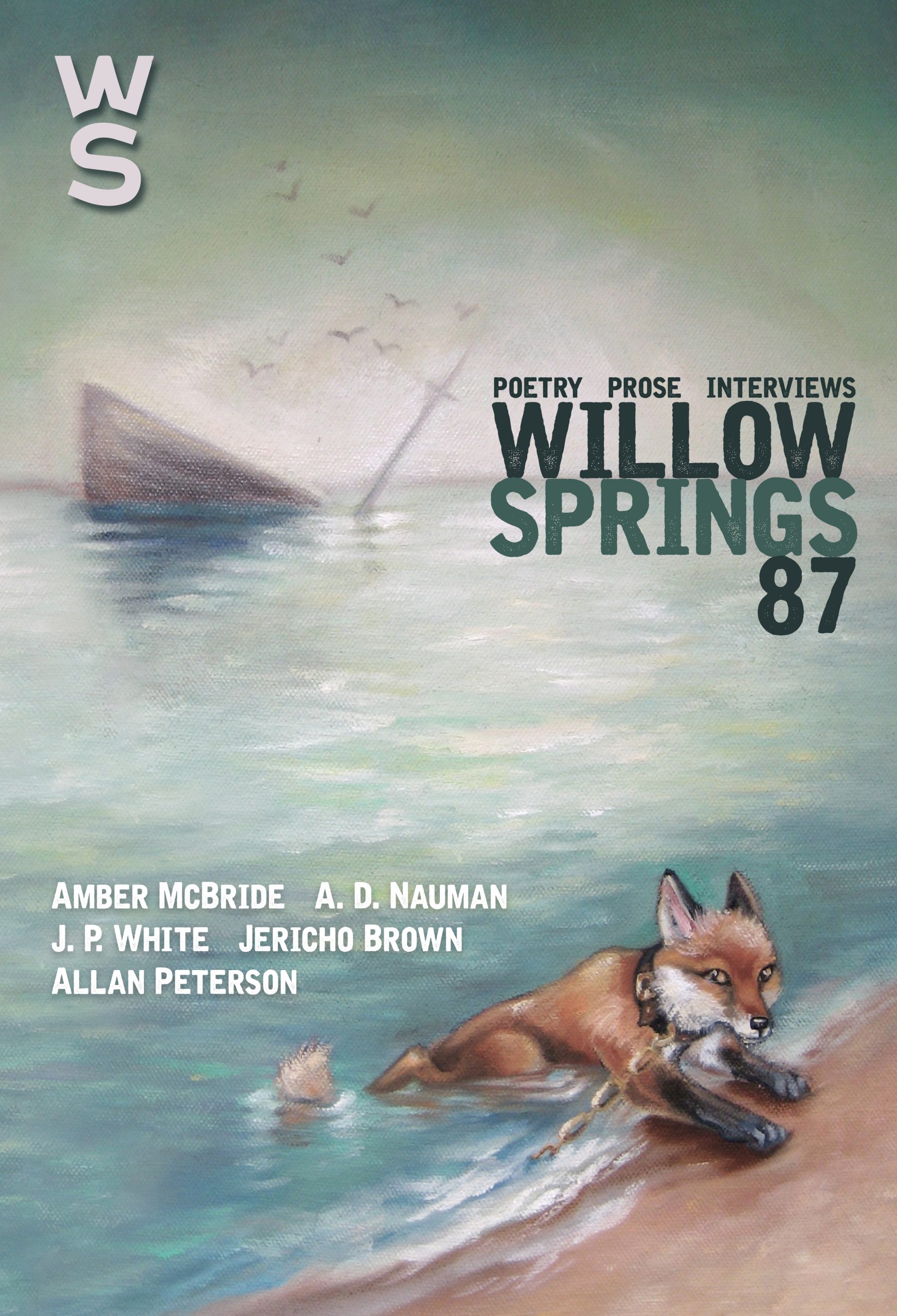
About J. P. White
J.P. White has published essays, articles, fiction, reviews, interviews and poetry in over a hundred publications including The Nation, The New Republic, The Gettysburg Review, American Poetry Review, North American Review, The Georgia Review, Southern Review, and Poetry (Chicago). He is the author of five books of poems and a novel, Every Boat Turns South. www.jpwhitebooks.net
A Profile of the Author
Notes on “Elegy for a Buckeye” and “Seabooted”
I was a night nurse of sorts for both of my parents in their last year. In those unequipped, nether hours between worlds, I would read to them, read to myself, sleep, and try to dream/imagine their earlier lives. My father was a lifelong sailor and he lived all his life on water or within earshot. On one of those late nights with my father, I traveled back to his childhood home in Sandusky, Ohio lined with buckeye trees. That night nurse traveling allowed me to enter the space in which both of these poems gather their images.
My hope for “Elegy for a Buckeye” is that the lament for the tree suggests the arc of a man’s life: what he was called to do in the state of Ohio that has been overly fond of elimination and removal.
In “Seabooted,” the overlay of one memory plays tricks with the present or it allows the past to round the corners of the present. By accident, rather than design, I often find myself in the collision of the past and present, how one subverts or informs the other and allows us to stare down our conclusions about what happened and what did not in the brief time we were given.
Music, Food, Booze, Tattoos, Kittens, etc.
I live for part of the year in the land of roosters. They are everywhere making themselves known and heard. It’s hard not to appreciate their enthusiasm for life and sex, but at 3 a.m. when they begin to crow and pass that crowing up and down the mountain, one’s regard for them changes into something like a survival competition. If and when the final cloud darkens, the rooster, centipede and mongoose will remain to battle it out for top billing.

About J. P. White
J.P. White has published essays, articles, fiction, reviews, interviews and poetry in over a hundred publications including The Nation, The New Republic, The Gettysburg Review, American Poetry Review, North American Review, The Georgia Review, Southern Review, and Poetry (Chicago). He is the author of five books of poems and a novel, Every Boat Turns South. www.jpwhitebooks.net
A Profile of the Author
Notes on “Elegy for a Buckeye” and “Seabooted”
I was a night nurse of sorts for both of my parents in their last year. In those unequipped, nether hours between worlds, I would read to them, read to myself, sleep, and try to dream/imagine their earlier lives. My father was a lifelong sailor and he lived all his life on water or within earshot. On one of those late nights with my father, I traveled back to his childhood home in Sandusky, Ohio lined with buckeye trees. That night nurse traveling allowed me to enter the space in which both of these poems gather their images.
My hope for “Elegy for a Buckeye” is that the lament for the tree suggests the arc of a man’s life: what he was called to do in the state of Ohio that has been overly fond of elimination and removal.
In “Seabooted,” the overlay of one memory plays tricks with the present or it allows the past to round the corners of the present. By accident, rather than design, I often find myself in the collision of the past and present, how one subverts or informs the other and allows us to stare down our conclusions about what happened and what did not in the brief time we were given.
Music, Food, Booze, Tattoos, Kittens, etc.
I live for part of the year in the land of roosters. They are everywhere making themselves known and heard. It’s hard not to appreciate their enthusiasm for life and sex, but at 3 a.m. when they begin to crow and pass that crowing up and down the mountain, one’s regard for them changes into something like a survival competition. If and when the final cloud darkens, the rooster, centipede and mongoose will remain to battle it out for top billing.


